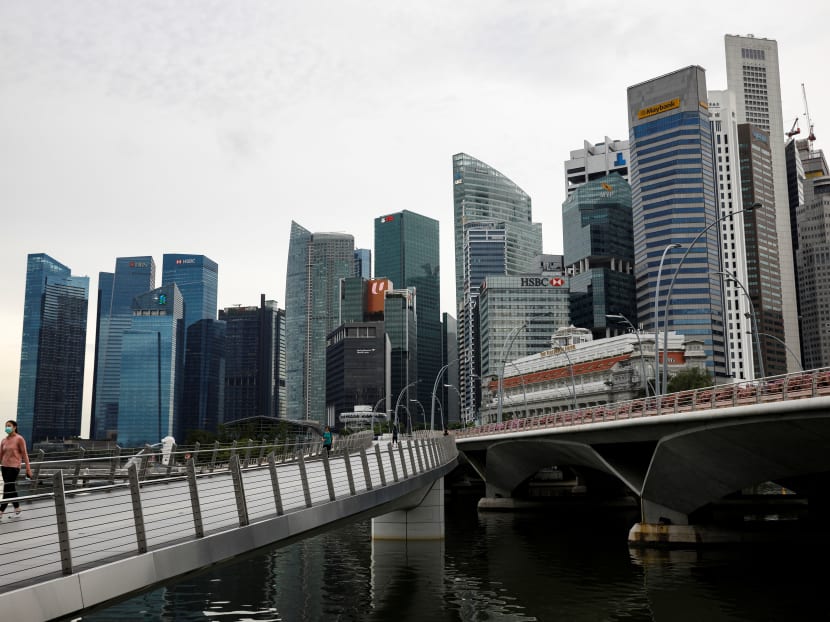Government leaders must be agile and flexible when making decisions during Covid-19 pandemic: Professor
SINGAPORE — The ongoing Covid-19 crisis is unpredictable and volatile, so decision-makers have to learn to be agile and flexible. They can no longer adhere to the same governance model based on clear rules, detailed planning and executing plans with little or no deviation.

Dr Cheong Koon Hean, chief executive officer of the Housing and Development Board, said at a forum that co-working spaces may move into the heartlands, which could help spread out the crowds in centralised areas such as the Central Business District.
SINGAPORE — The ongoing Covid-19 crisis is unpredictable and volatile, so decision-makers have to learn to be agile and flexible. They can no longer adhere to the same governance model based on clear rules, detailed planning and executing plans with little or no deviation.
This pre-pandemic model of leadership was effective here because conditions were stable, but is no longer tenable in the aftermath of the disease outbreak.
These remarks were made by Dr Neo Boon Siong, former dean of the Nanyang Business School, who was speaking on Wednesday (June 3) at a virtual panel discussion on the topic, “Bouncing back from Covid-19”.
The event was organised by the Institute of Policy Studies and hosted by Dr Gillian Koh, the institute’s deputy director for research and a senior research fellow.
It also featured other speakers including Professor David Chan, director of Singapore Management University’s Behavioural Sciences Institute; Dr Vernon Lee, director of communicable diseases at the Ministry of Health (MOH); hotelier and restaurateur Low Lik Peng; and Dr Cheong Koon Hean, chief executive officer of the Housing and Development Board (HDB).
Dr Neo, who is the Canon Chair Professor of Business at Nanyang Technological University, was responding to a question from the audience on how the Government can be agile and decisive when it may be concerned about public criticism over its decisions later with the benefit of hindsight.
In response, the professor said that the public’s expectations of government leaders need to also change in the wake of the pandemic.
“We should not expect (the Government) to be all-knowing. It is not possible. We should not expect it to make no mistakes, but to operate with what it has,” Dr Neo said.
“We should not judge the Government on single decisions… but look at the overall portfolio. As a society or as individual citizens, we need to learn this. If we don’t, then we will have the Government that we (typically) expect and I think that will eventually cause us to fail.”
On another subject, the panellists discussed how the ongoing pandemic could lead to wide-ranging infrastructural changes here, in workplaces and even in people’s homes.
These changes are to be expected, they said, as Singapore moves to apply the lessons learnt to become more pandemic-ready and people learn to adapt to the “new normal”.
For example, in terms of urban planning, Dr Cheong of HDB said that she would not be surprised if co-working spaces move and establish themselves in neighbourhoods such that individuals may not even need to take public transportation to work.
This will also help to spread out the crowds in centralised areas, such as the Central Business District, and create regional “bubbles” where residents may shop, work and take part in recreational activities in their neighbourhood.
At home, living space can be redesigned to accommodate more members of the household to be able to work from home so that each resident is able to have more privacy.
These are just some of the ways that a dense city such as Singapore can evolve in the new era of safe distancing, she said.
A member of the audience asked whether the need to reduce crowds to curb the spread of the disease would have an impact on the 6.9 million population planning parameter that was laid out in the Government’s Population White Paper in 2013.
To this, the panellists stressed that minimising dense areas is not just about reducing crowd sizes and there are many other factors that influence how an infectious disease is transmitted.
For example, Dr Lee of MOH noted that Covid-19 spreads through close physical interaction, and clusters in Singapore had formed because individuals who had contracted the coronavirus had continued to go to work or attend social gatherings.
He added that during the circuit breaker period that restricted movement and activities in the past two months, Singapore’s population size had remained unchanged but the rate of community transmission still slowed down significantly during the period.
“We need to take all these into consideration before we say that the best thing to do is cut down Singapore’s density and that will naturally solve the problem. I think that may be too narrow and is not going to solve the problem so quickly and so easily."








